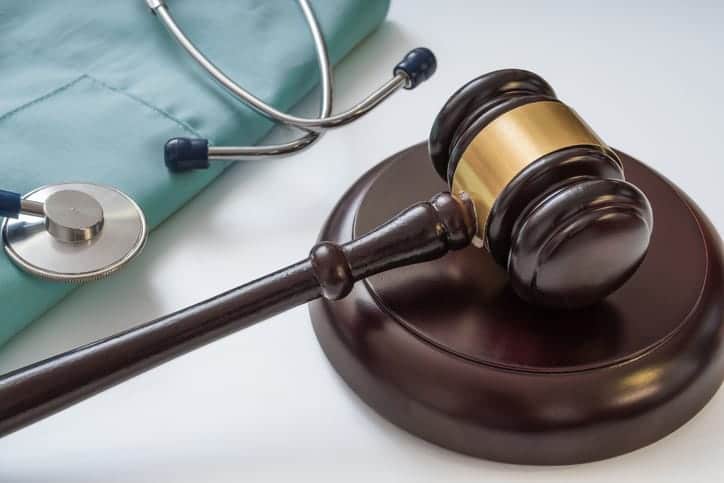What Is Considered A Cosmetic Surgery Malpractice?
The number of individuals seeking cosmetic surgery has steadily increased over the last few decades. According to recent studies, The United States is the top leading country for cosmetic surgeries with a total of 7,000 cosmetic surgeries in the year of 2020. Cosmetic procedures are most of the time optional medical procedures that are done to improve one’s appearance. Just like any other surgery, a cosmetic surgery malpractice or an error can arise if the procedure is not done correctly.
Moreover, If a surgeon or other healthcare professional executes an error that led to medical negligence, and the patient is harmed, the patient has the right to go forward to file a medical malpractice lawsuit. If you continue reading, you’ll find out what goes into a cosmetic surgery malpractice and how you can start your claim.
Common Cosmetic Surgery Procedures
A professional cosmetic surgeon is capable of modifying any body part that a patient is interested in changing. Below are the most common types of cosmetic surgery:
- Liposuction: This involves removing fat deposits, often around the hips, thighs, upper arms, or abdomen. Unfortunately, these risks can include fluid loss, swelling, bruises, scars, and numbing of the skin.
- Rhinoplasty: Changing the shape of the nose. Specific risks include recurring nosebleeds, difficulty breathing through the nose, and numbness inside and outside of the nose.
- Breast Augmentation: Use of implants made of saline or silicone, to increase breast size. However, implants can break or rupture. Women may experience hardening of the breasts, which can result in additional surgery.
- Tummy Tuck: This includes a surgical procedure to improve the shape and appearance of the abdomen. But, the healing process is very slow, and permanent numbness in the abdomen area is possible.
- Facelift: Removal of extra fat, tightening of muscles, and modifications of the skin around the face and neck area. Complications can include damage to the nerves that control facial muscles. Skin discoloration is also possible.
Potential Injuries That Can Arise From A Cosmetic Surgery Malpractice
Each type of cosmetic procedure may result in injuries and affect the patient’s health, but typically all cosmetic surgeries come with danger of:
- infection
- complications from anesthesia
- hematoma or blood clotting
- scarring
- drop in blood pressure
- necrosis (insufficient oxygen supply causing the death of tissue)
- nerve damage
- death
What Would Be Considered A Cosmetic Surgery Malpractice?
Medical malpractice generally happens when a medical professional or hospital acted negligently that resulted in an injury to a patient.
A medical malpractice may result of one or several issues during plastic surgery, which includes:
- Surgical errors. Mistakes or errors that occur before or during surgery. In addition, this can include giving the patient the wrong anesthesia or the wrong amount, performing wrong operational procedures, leaving surgical instruments inside the body, or operating on the wrong bodily part.
- Lack of training or not enough experience on the part of the plastic surgeon or staff.
- Failure to have informed consent. Before performing any surgical procedure, surgeons are required to explain the risks involved and obtain, in writing, the patient’s acceptance and acknowledgment of these risks.
- Not obtaining and reviewing the patient’s medical history. It’s critical that a surgeon reviews the patient’s complete medical history in order to determine any allergies, medications, and past medical issues and complications.
Elements To File A Lawsuit
To pursue a lawsuit successfully for medical malpractice by a cosmetic surgeon, the injured victim must establish:
- The existence of a surgeon-patient relationship.
- That the cosmetic surgeon failed to comply with the applicable medical standard of care when treating the patient
- The plaintiff suffered harm as a result of the cosmetic surgery malpractice
Here are a couple of other things to take into consideration if you are thinking of suing your plastic surgeon:
- Signing a waiver. It’s important to be aware of whether or not you signed a waiver before the surgery. Most of the time, cosmetic procedures, being voluntary, require you to complete such a document or sign a waiver. The purpose of these waivers is to protect the surgeon by having you acknowledge the risks involved. Signing a waiver doesn’t mean you are unable to win a medical malpractice case.
- Documentation. Always document and keep all records relating to your surgery to share with your attorney. This includes any waiver you filled out or sined, other documents provided by your plastic surgeon, medical records and payments, employment records showing lost income, and any other proof relating to the surgery and resulting injury.
- Timing of filing a lawsuit. It’s extremely critical to know that the statute of limitations in Washington D.C and Maryland for filing a medical malpractice lawsuit is three years. In the state of Virginia, the statute of limitations for filing a medical malpractice is two years. This means you have this specific time frame from the date of the injury, or from when you realized the injury, to file a lawsuit.
- Compensations that are available. Receiving compensation for economic and non-economic damages will be evaluated by an experienced medical malpractice attorney. It is possible to obtain full awards for your losses, including those that are physical, mental, and emotional.
How Can Malloy Law Offices, LLC Help With Your Case?
Any type of medical-related injury can be frightening and legal action should be taken. It is always recommended to speak with a personal injury attorney can help you and guide you into the right direction. At Malloy Law Offices, LLC, we have handled cases related to cosmetic surgery injuries and medical malpractices, due to medical errors. If you or a loved one suffered an injury after a cosmetic surgery procedure, contact our firm. Call now (202) 933-1918.





